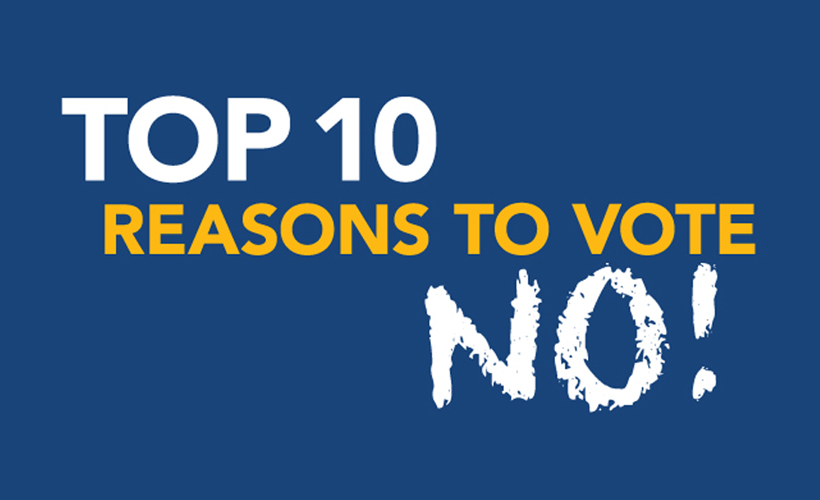The Professional Association of Foreign Service Officers (PAFSO) thought it was important to provide an update on recent developments about their members and inform other unions about the implications of PAFSO job action for members of the [EC / CO / LA / PM / AS / FB] bargaining unit.
RECENT DEVELOPMENTS
As you may know, PAFSO job action has now entered its fourth month. They are seeking wages equal to those of other federal government professionals performing similar or identical work within Canada. An outline of their key issues can be found at http://www.pafso.com/news_releases.php?newsID=151.
Since June 6, PAFSO has escalated its service withdrawals to encompass hundreds of employees in dozens of work locations in Canada and abroad. This follows a collapse of talks on June 5 during which the employer decided not to revise its pay offer, again presenting the same offer to PAFSO that had been on the table since negotiations began 20 months earlier. PAFSO was advised that this decision has been made at the highest political level.
As a result, PAFSO’s job action strategy is now aimed at disrupting all Cabinet-level international priorities and travel (including that of the Prime Minister) as well as visa and immigration processing at Canada’s major processing centres abroad. As of early July, the effects of this strike on Government business and the Canadian economy are increasingly severe and mounting. We understand that barring meaningful engagement by the Government at the negotiating table, it is PAFSO’s intention to continue to exert maximum pressure throughout the summer and into the fall if necessary.
WHAT THIS MEANS FOR YOU
Current job action by PAFSO has important implications for labour relations across the federal public service in the short and long term. We keen to ensure that our own union and our members provide as much support to PAFSO’s efforts as the law allows.
1. All members: We ask all [CAPE / PIPSC / AJC / CEIU / UNE / CIU] members to continue to show support for PAFSO members who are on strike and to respect the lawful job action process by not attempting to perform any of the duties of striking FS employees. If directed by your supervisor to do so, you should refer them to your department’s own Guide for Strike Preparation, which states clearly that “Employees in other bargaining units should not be asked to perform duties of employees on strike.” If your supervisor persists, please contact your [CAPE / PIPSC / AJC / CEIU / UNE / CIU] labour relations officer for guidance.
2. Members assigned to FS positions: Substantive members of [CAPE / PIPSC / AJC / CEIU / UNE / CIU] bargaining units currently assigned/acting in a FS position are deemed under the Public Service Labour Relations Act to be members of the FS bargaining unit for the duration of their assignment and are therefore eligible to participate in job action. (The Public Service Labour Relations Board confirmed in its 2004 Potter decision that “you are what you do” is the overriding principle in determining an employee’s bargaining unit.) We urge all such members to follow job action instructions from PAFSO. This is true even if your union dues are still being directed to [CAPE / PIPSC / AJC / CEIU / UNE / CIU]: there is often a lag within a department’s compensation services in updating membership lists (“check-off”) for unions and redirecting union dues appropriately, especially in departments with heavy rotationality like DFATD and CIC.
3. Members on short-term deployments doing FS work: Substantive members of [CAPE / PIPSC / AJC / CEIU / UNE / CIU] bargaining units on short-term deployment (“temporary duty”) at missions abroad to provide surge capacity during peak season are performing FS work and deemed to be members of the FS bargaining unit for the duration of the deployment – even though you are not assigned to a specific FS position. This applies especially to employees deployed to CIC visa processing centres (generally PM or FB group members). You are eligible to participate in job action and we urge you to follow PAFSO’s instructions. No matter what your manager may say, you can not be disciplined for participating in lawful job action by your bargaining unit at the time. Management is prohibited from using replacement workers from other unions to compensate for the absence of striking Foreign Service officers, and PAFSO has signaled its intention to pursue an unfair labour practice complaint in cases where managers seek to circumvent job action by obstructing unionized employees on short-term deployments from striking.
4. Members who withdraw services on PAFSO’s behalf: PAFSO has confirmed that they will reimburse 100% of net pay recovered by the employer as a result of your participation in service withdrawals – even if your salary scale (which is protected during your assignment to a FS position) exceeds FS rates of pay. Remember that, under law, the employer may only recover salary plus Foreign Service Directives (FSDs) 56 and 58, prorated to the exact number of days for which you withdrew service. This is confirmed in Treasury Board’s “Policy on Strikes” (http://www.tbs-sct.gc.ca/pol/doc-eng.aspx?id=12607). If you are on temporary duty and receiving FSD 8 (Short-Term Assignments outside Canada), the employer can not withhold accommodation, flight, or per diem costs.
In closing, the PAFSO wishes to thank all members for their continuing support and solidarity for our Foreign Service colleagues. Please contact your CIU labour relations officer should you have any questions concerning these or other implications of PAFSO job action for you and your work.




